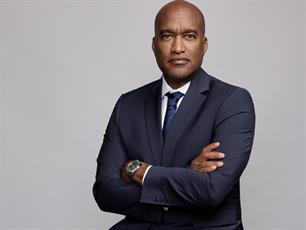Holmes Report 08 Mar 2016 // 9:00AM GMT

LONDON — New research from Omnicom identifies the challenges that continue to stymie female advancement in the marketing industry, focusing in particular on what EVP Janet Riccio calls "the impostor complex."
The research comes ahead of the Omniwomen Summit in London today, which is designed to inspire Omnicom’s rising female stars across its UK companies. The survey by Omnicom firm Flamingo Research polled respondents across the group, finding that "women are getting vertigo halfway up the ladder."
Omnicom EVP Janet Riccio, who launched the Omniwomen initiative a couple of years ago, believes this is partly down to the "impostor complex that women have disproportionately to men."
"The feeling that we don’t have all the skills that are needed," said Riccio. "One of the barriers to women really taking an equitable role at the big table has to do with our relationship with power and our comfort with power. Cracking the confidence code will be important to us."
The research also reveals that some women are rejecting the traditional upward trajectory in favour of a more ‘curvy career path’, which allows them to broaden their skill set, in turn, making them more competent and confident leaders.
"It feels as if job satisfaction is becoming more important than hierarchical job titles," said Porter Novelli UK MD Fenella Grey. "This stable of agencies can offer more than the hierarchical striving for the top. That said, we want both."
Two years since it launched, Riccio believes Omniwomen has made a significant difference to gender equality at Omnicom's upper ranks. In the UK, almost 80% of the holding group's agency management teams comprise 40% women or more, ahead of the IPA’s 2020 goal.
Riccio also pointed to high-profile appointments like DDB North America CEO Wendy Clark, Omnicom PR Group CEO Karen van Bergen and TBWA\Health CEO Sharon Callahan, and also noted that 40% of the group's independent board members are now women.
The research also concludes that a new leadership model calls for women to feel supported to grow and get things wrong and learn from their mistakes. In this regard, Grey said that role models remain critical.
"One of the other themes that came from the research was the projection of role models," said Grey. "[Leadership roles] can feel removed and potentially full of stress, and a compromise with fulfilment. We are all human. We need to help women feel comfortable in feeling uncomfortable."


































.jpg)




.tmb-135x100.png)












